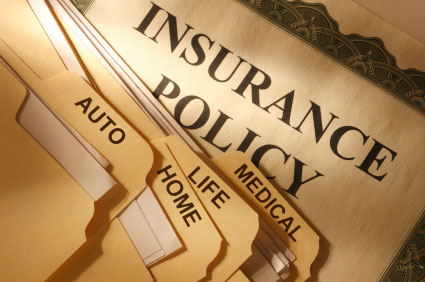A brief introduction to insurance
This article was written by Aaron Pinkston. He used to help other insurance agents understand insurance. Now he prefers dealing directly with the public.

A quick note: I am not giving out tax or legal advice, and you shouldn’t think I am. The advice I have to offer through this site is generic only because the audience is so diverse. If you have specific questions, you should consult a financial planner or insurance specialist.
What Is Insurance and How Does It Fit Into My Plan?
Insurance is the cheapest and most immediate way for a person to displace risks that are too great to assume individually. I can afford the doctor for an annual check-up, but what if I need an MRI and surgery? By paying a smaller amount up front, I am moving the responsibility from my shoulders to a large organization.
When you displace that risk with a large group of others, you are pooling your risk with your neighbor. The insurance company is a large organization charged with administering that group of risks in the unforeseen event that something happens to any individual in that pool.
There are all types of risks that we face on a day to day basis. Any of these risks can throw a monkey wrench in our months and years of frugality, and ruin the spirit of getting rich slowly. Some of the more concrete risks that we face are getting into a car accident or our house burning down — known as property and casualty. Some risks are less tangible such as getting sick, staying sick, and dying — known as life and health.
When I originally wrote J.D., I told him that I saw two potential problems that his readers faced:
- Throwing away good money on insurance when your cash flow is better spent in other areas. This basically means that if you are struggling to make ends meet on a $19k salary and drowning in credit card debt at the rate of 21%, your first priority should not be picking out permanent life insurance.
- Being unprepared for a catastrophic event which could have been easily displaced. Someone in my neighborhood died last month. When my wife and I took the casserole over to his family, I offered to help his wife with the insurance claims forms if she couldn’t contact her agent. Come to find out her late husband had two kids, a business with 12 employees to run and no life insurance.
What Steps Should I Take?
Many people have inadequate insurance protection because they don’t know where to begin. Don’t be frightened. Here are some easy ways to get started:
- Figure out what your risks are. Do you have adequate life insurance? Have construction costs doubled since you last reviewed your homeowner’s policy?
- Prioritize the list. Once you have figured out where your exposures to risk are, put them in order by doing some research. You are more likely to get sick during your working years than you are to die during the same period, so take care of that first.
- Always get more than one expert opinion. Everyone who has an opinion projects the biases of their background in their words. I don’t care if it’s your father, your insurance agent of 15 years, or me. Make sure that the advice really rings true to you and makes sense in your situation. Talking with at least two experts in the field will get an informed opinion from at least two perspectives.
- Use some common sense. If it costs too much to insure your Mustang, maybe it’s time to sell your baby. If you have a cash surplus of $10k, maybe you should increase the deductible on your health insurance to reduce premiums.
Finally folks, you need to review your plan from time to time to make sure that things are still on track and your coverage hasn’t changed.
Become A Money Boss And Join 15,000 Others
Subscribe to the GRS Insider (FREE) and we’ll give you a copy of the Money Boss Manifesto (also FREE)

